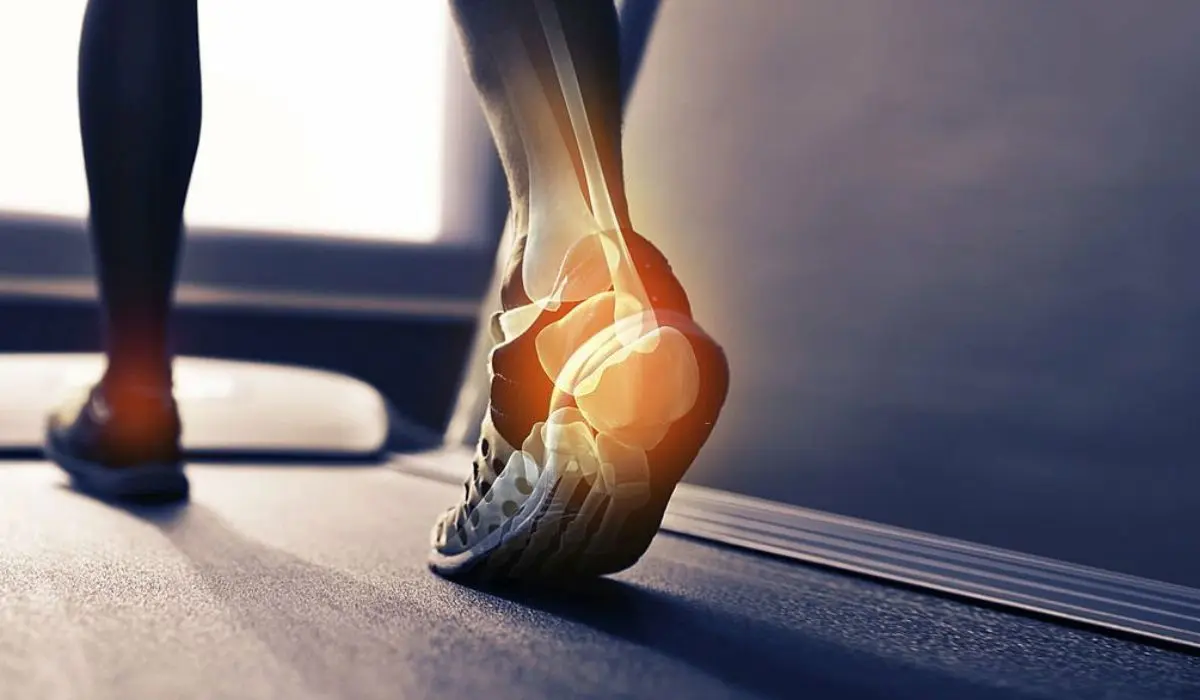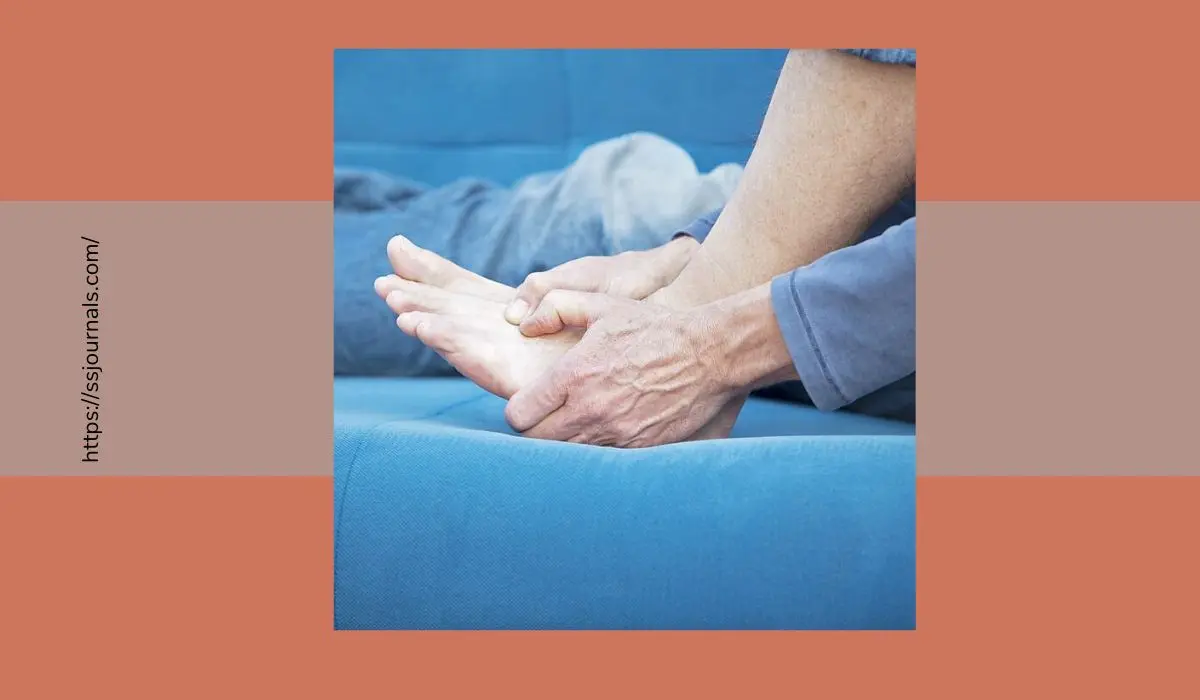Have you ever been startled by a sharp pain in your heels as you rose from bed in the morning? In that case, you are not alone. It’s a sign that you are just facing one of the most common issues affecting the people of our generation. Morning heel pain is not rare, and it must be understood and managed effectively. We can try to learn more about it in this blog.
What Is Morning Heel Pain?
Morning heel pain is an umbrella term primarily used to suggest the pain and discomfort people experience in the heel region when taking the first steps out of bed. It usually comes with a hard stabbing sensation in the heel or sometimes an aching along the bottom of the foot.

Common Causes Of Morning Heel Pain
There are numerous potential causes for this sensation; the most dominant ones include:
Plantar Fasciitis
When it comes to heel pain, plantar fasciitis is one of the most commonly recognized causes. The inflammation of a thick band of tissue called plantar fascia that runs along the bottom of our foot is the reason behind it.
This can cause pain in the heel or arch of the foot, especially in the morning or after long periods of walking or standing. Many people identify it as a “knife-like” pain in the heel, as it feels so sharp at times.
Heel Spurs
The bony growths that develop at the underside of the heel bone are called heel spurs. In many instances, this is seen to co-exist with plantar fasciitis, contributing to morning heel pain. Even though the spur alone may not be painful, it can create discomfort by irritating the surrounding tissues.
Tarsal Tunnel Syndrome
This is a condition where the posterior tibial nerve is compressed as it travels through the tarsel tunnel in the inner ankle. This compression will progress to pain and tingling sensations in the heel and arch of the foot.
Overpronation and Flat Feet
Heel pain in the morning may occur in people who possess the habit of overpronating (to roll their feet inward excessively). This happens when the alteration in pressure is distributed across the foot, which can put extra stress on the plantar fascia and heel.
Poor Choice of Footwear
A common lifestyle impact that causes this heel pain is the choice of footwear. Wearing shoes and footwear without proper cushioning and support can aggravate heel pain.
Also Check: Signs Your Vasectomy Grow Back Together: Symptoms Of Recanalization
Myths Surrounding Heel Pain
Now let’s get into some myths surrounding this condition, as it is the subject of a bunch of them. Here are a few of them:
#Myth 1
“Heel spur is the cause for heel pain”. As we have read earlier, heel spurs by themselves do not cause pain. Instead, it can be mostly a sign of an underlying condition like plantar fasciitis.
#Myth 2
“Taking rest is the best treatment”. Of course, rest will help in healing the pain as it does with any other condition or disease. However, it cannot be advised, as it is not always the best treatment. There are a range of other activities and treatments, such as physical therapy, orthotics, stretching, etc., that may be more effective.
#Myth 3
“You can only rely upon surgery for treating heel pain”. The fact is that surgery is rarely seen as necessary for heel pain treatment. The majority of the cases can be cured with various conservative measures, like stretching exercises, physical therapy, and orthotics.
Ways To Manage Morning Heel Pain
It is relieving that this common lifestyle condition can be treated in many ways to help alleviate the discomfort. It can be achieved majorly by a few daily routines and lifestyle adjustments. Here are a few of them:
Proper Footwear
Make sure that you spend effectively in buying footwear or shoes that have good arch support as well as cushioning. Always try to avoid shoes with damaged soles.
Stretching Exercises
Make it a routine to do gentle stretching exercises for the Achilles tendon and calf muscles just before getting out of bed. This will help a lot in preventing the initial jolt of pain.
Ice and Heat
It is good to apply some ice to the affected area for at least 15 to 20 minutes in the morning to reduce the inflammation. It is also advised to use a warm compress to relax the muscles to soften the pressure.
Medications
The use of over-the-counter pain relievers such as ibuprofen, for instance, helps minimize inflammation and offer temporary relief to those experiencing heel pain. Ask your healthcare provider before long-term use.
Night Splints
A night splint that keeps the foot dorsiflexed can prevent plantar fascia from contracting overnight, thus minimizing morning pain.
Physical Therapy
The physical therapist can prescribe exercises and techniques to help improve strength, flexibility, and alignment of the foot and ankle.
Rest
Allow your feet to heal. Limit any activity that increases pain, and reduce high-impact exercise until it becomes better.
It is important to pay attention to morning heel pain early in the morning. If you know the common causes of this discomfort, you can regain pain-free mornings and enjoy life as never before. Always keep in mind that persistence is essential when it comes to managing heel pain. Be determined and consistent in your search for a solution.
Frequently Asked Questions
The principal cause is plantar fasciitis, inflammation of the tissue on the bottom of your foot, which causes a sharp pain in the heel when you wake up in the morning.
Indeed, selecting supportive shoes with adequate arch support and cushioning may minimize morning heel pain. Worn-out or unsupportive shoes should be avoided, with orthotic inserts considered for additional support.
Yes, in some cases, stretching, orthotic inserts, and proper footwear may offer long-term relief. However, if pain persists, consult your provider for advanced treatments like corticosteroid injections or surgical intervention if need be.

